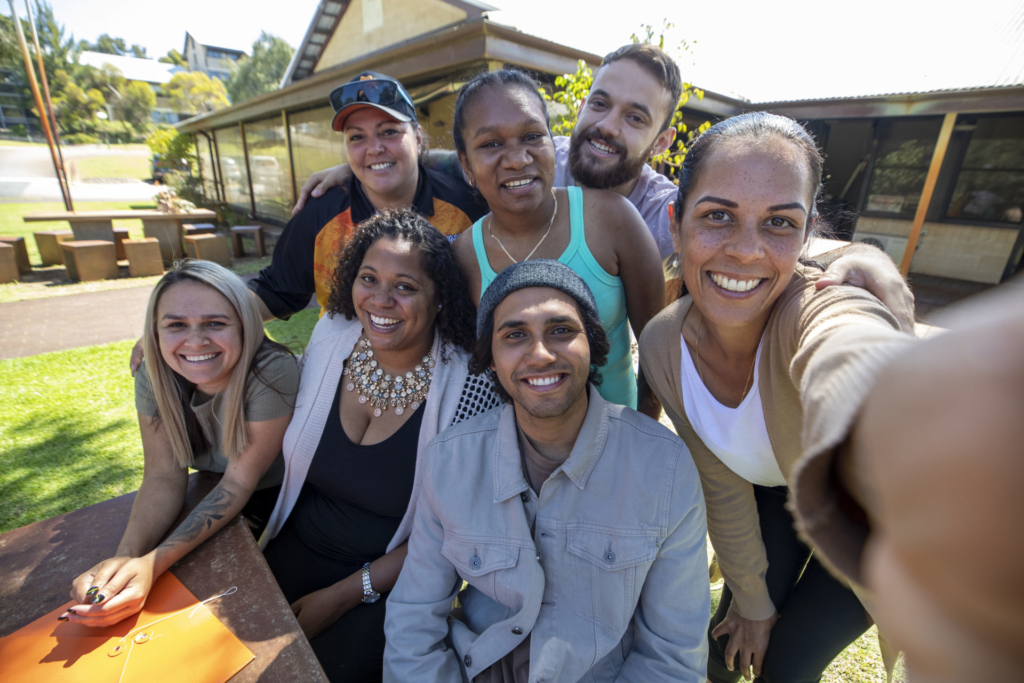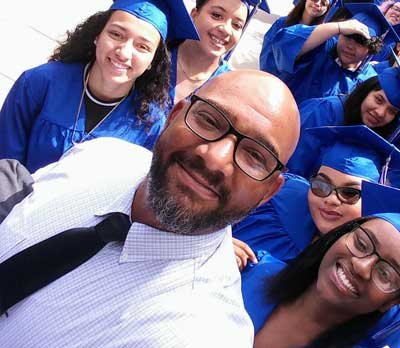It doesn’t really matter who we are learning with, what we are learning, or the exact setting in which we are learning. It matters what we are up to together.
Alin Bennett, Education Reimagined
As learner-centered educators, advocates, and leaders, we tend to be laser-focused on the conditions for the learning, growth, and development of our young people. Even when we talk about educator development, we often focus on what is being learned and the difference it will have on the children we serve—considering the conditions in which we will learn as an afterthought or a “nice to have.”
I want to challenge this notion. To be learner-centered means that we are attentive to the learner’s needs, gifts, interests, circumstances, and aspirations—no matter who the learner is. Even if it’s us.
So, what can we learn about great adult learning by just noticing the world around us and the circumstances that have set us up for our best learning opportunities?
I took on this question and keep coming back to the same noticing: It doesn’t really matter who we are learning with, what we are learning, or the exact setting in which we are learning. It matters what we are up to together.
Common Intention, Different Contexts
About ten years ago, I had the opportunity to support a young learner in a year-long internship at a computer repair shop. Prior to that year, I’d had no experience with computer hardware and was afraid I would not be able to help this learner progress and transform this interest into a strong learning experience. That worry didn’t last long.
I realized during the very first meeting with the young learner and their mentor (the owner of the shop) that the young learner was not the only one about to embark on a learning journey; in partnering to support this young person, each adult would contribute and learn something different from the other.
For the mentor, they discovered a real passion for working with young people and developed the knowledge, skills, and dispositions it takes to do so well. For me, the experience helped me shift what I felt my role was in the learning of the kids I supported. It began a two-way street of learning. And as a bonus, I discovered electronic hardware was not as mystifying as I’d first assumed. In fact, I just recently replaced the HDMI port on my son’s Playstation 4.
Another experience that I was reflecting on was when I was also able to witness adult learning happening much more organically; this time between internship mentors. Every year, the Met School would host an event to support mentors (those who hosted interns in varying businesses and community spaces across the city). The event was part networking, part orientation, and part community building.
At one of them, I was able to sit in on a conversation with a few mentors after the conclusion of the event. The conversation centered on a newer mentor’s struggle to keep a young learner engaged during slower times of the day. They landed on a few ideas: shift the young learner’s schedule, provide them with a dedicated workspace of their own, and be more curious when signs of disengagement arise. It was amazing to observe three strangers, with three very different areas of expertise, from three very different lived experiences, brainstorming how to best support a young person.
Now that I’ve stepped into my role at Education Reimagined, I’ve had far more opportunities to think about and witness adult learning.
As we launched the Learning Lab Orientation this summer and then again with our current fall cohort (another is being offered this spring for anyone interested), the diversity of participants has been notable—coming from vastly different roles and occupations. Amongst educators from across the country and world, we have had an educational technologist, a journalist, and a parent.
At first, we were a little nervous about trying to create a powerful learning experience that met all these diverse needs. Yet, although there was a real diversity of professions and lived experiences, there was also a shared vision of learner-centered and equity.
These were all people who, through some circumstance, had found their way to this vision and commitment. This characteristic in the make-up of adult learners has resulted in a powerful dynamic where all involved can grapple with the complexities of transformation with others who are engaging with the educational system from different vantage points but with the same aim in mind.
These were all people who, through some circumstance, had found their way to this vision and commitment. This characteristic in make-up of adult learners has resulted in a powerful dynamic.
Alin Bennett, Education Reimagined
Embracing Different Approaches to Adult Learning
In each of these cases, whether my own experience with the computer repair mentor, the learnings shared across mentors in an offhand conversation, or the facilitated experiences offered through Education Reimagined, there are some notable themes, many of which are new to me.
First, although the adults came from different walks of life, they were sharing a common intention; supporting young people on their learning journey.
Second, within that intention, they could clearly see themselves in the work and the contributions they could make.
Lastly, the atmosphere that was set while collaborating disrupted the “occupational caste-system” that unfortunately exists in society today. It did not matter if they were chefs, CNAs, engineers, or social workers; the inclusive culture that existed enabled people to feel welcomed, valued, and needed.
Adult learning that holds and embodies all of these characteristics is much different from that which normally occurs in our professional lives. No matter our profession, it seems that we encounter the same relational, structural, and “contentual” (meaning the content we cover) constraints as those imposed by the conventional education system. This is particularly true in the professional development available in the education system.
I have experienced PD in a conventional environment, where updates on logistics and systems were masqueraded as learning. I have also experienced deeply valuable instrumental, socialized, and self-authored learning at numerous learner-centered environments.
Both have something in common though: the professional development is siloed in regards to what we learned and who we learn it with; we develop competencies connected to our areas of expertise and we do it (if we’re lucky!) with others who share that same expertise. While there is value in learning with those up to similar work or learning a similar skill, I believe balancing it with learning that has a different purpose, has us engage with unexpected co-learners, and addresses different problems in ways that can be transformative.
Education is a shared interest for every community. The ramifications of its success are felt in every corner of society. What would be possible if we took a community-based, collective-impact approach to education and other areas of a community where there is shared interest? How would it improve how we engage with members of our communities? How would it shift our view on life-long learning and growth?
What would be possible if we took a community-based, collective-impact approach to education and other areas of a community where there is shared interest?
Alin Bennett, Education Reimagined
By bringing together adults across expertise, professions, and lived experiences and having them working in community on the aspects of their lives that matter most to them, we can re-contextualize how we see adult learning and, more importantly, our community relationships and interactions.
During a time of growing divisiveness, increasing tendency to dwell in our echo chambers, and what seems to be a consistent tendency to drift away from place-based community; coming together in service of shared commitments has the potential to help keep humanity and connectedness at the center of our rapidly changing world.

